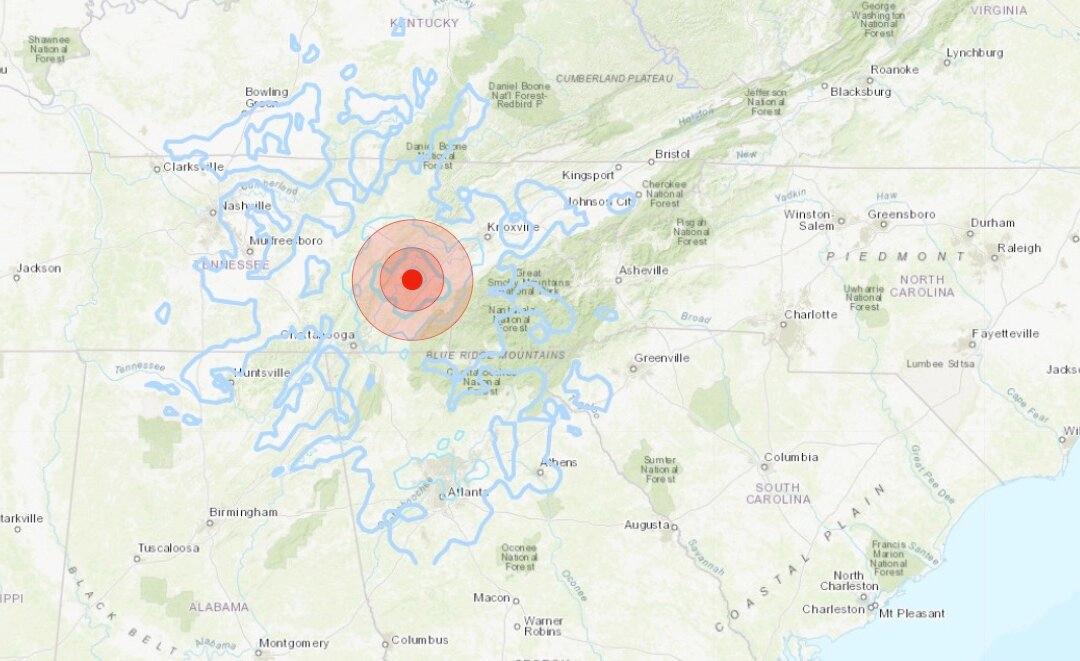A 4.4 magnitude earthquake struck eastern Tennessee and could be felt as far away as in Atlanta, according to the U.S. Geological Survey (USGS).
The quake hit on Wednesday, Dec. 12, at around 4:14 a.m. at a depth of 5.6 miles (9 kilometers), the USGS said. The epicenter was located at about 7 miles (11 kilometers) northeast of Decatur, which is about 150 miles (240 kilometers) north of Atlanta, Georgia.





